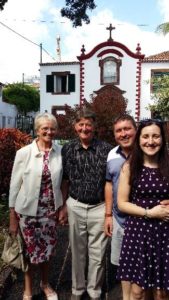Scripture Readings 30th October 2016, 31st Sunday in Ordinary Time, Year C
The Book of Wisdom has been describing ways in which Wisdom guided the patriarchs and took special care of Israel during their Exodus wanderings in the desert. God’s mercy extends to all creation, even men’s sins. The logic is impeccable: “you love all that exists”, “for had you hated anything, you would not have formed it.” Offenders are reminded little by little of their sins so that they may “abstain from evil and trust in you, Lord”.
For the next three weeks we have readings from Paul’s second letter to the Thessalonians. After his opening greeting, Paul thanks God for the strength of the Thessalonians’ faith, which he boasts about to other churches, and assures them that those persecuting them will be punished. Assuring them of his prayers, Paul tells them not to be misled by false information about the second coming. Much has to happen before the end time.
In the Gospel Luke graphically describes the rich tax collector, Zacchaeus. Curious to see Jesus, Zacchaeus immediately follows Jesus and promises to give half his wealth to the poor. A contrast to the rich official who could not detach himself from his material possessions to follow Jesus. Though excluded from the Jewish community by his occupation, Zacchaeus receives salvation as a true son of Abraham.
Psalm Response: I will bless your name for ever, O God my King
(Wisdom 11:22-12:2 Ps 44(45) 2 Thess 1:11-2:2 Luke 19:1-10)

